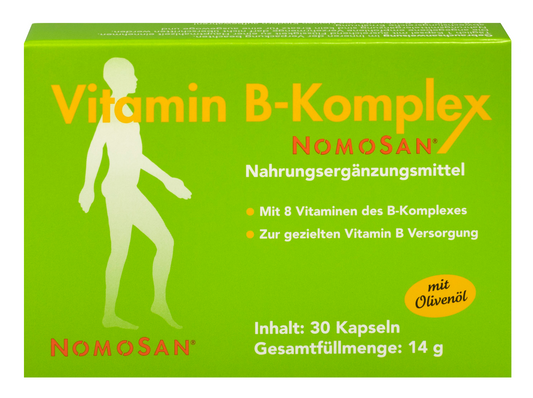What do anthocyanins do in the body?
Anthocyanins are powerful antioxidants that provide numerous health benefits. They neutralize free radicals that can cause cell damage. This helps reduce oxidative stress, which is linked to chronic diseases such as cardiovascular disease and cancer. In addition, anthocyanins have anti-inflammatory properties that can reduce inflammation in the body. Studies have also shown that anthocyanins can improve circulation, boost the immune system, and promote eye health.
Which foods contain anthocyanins?
Anthocyanins are found in many colorful fruits and vegetables. The best sources include:
- Berries : blueberries, raspberries, strawberries, blackberries and blackcurrants.
- Grapes : Especially red and purple grapes.
- Red cabbage : An excellent source of anthocyanins.
- Eggplant : The skin of the eggplant contains a considerable amount of anthocyanins.
- Cherries : Both sweet and sour cherries.
How many anthocyanins per day?
There is no official recommended daily intake for anthocyanins. However, nutrition experts recommend incorporating anthocyanin-rich foods into your diet on a regular basis. A daily intake of around 100-200 mg of anthocyanins is often considered beneficial, which is roughly equivalent to one cup of berries per day.
Are anthocyanins antioxidants?
Yes, anthocyanins are powerful antioxidants. Antioxidants are substances that help prevent oxidative damage caused by free radicals. Free radicals are unstable molecules that can cause cell damage and contribute to the development of chronic diseases. Through their antioxidant effects, anthocyanins can help reduce the risk of such diseases.
What is the healthiest berry?
Blueberries are often considered the healthiest berry because they are rich in vitamins, minerals and antioxidants. They contain high amounts of vitamin C, vitamin K and fiber. The anthocyanins found in blueberries help improve heart health, strengthen the immune system and promote brain function.
Are blueberries good for intestinal inflammation?
Yes, blueberries can be helpful for gut inflammation. The anthocyanins and other antioxidants found in blueberries have anti-inflammatory properties that can help reduce inflammation in the gut. Studies have shown that eating blueberries can reduce the symptoms of inflammatory bowel disease.
Are blueberries good for the pancreas?
Blueberries may support pancreatic health because they have anti-inflammatory and antioxidant properties. These properties may help reduce inflammation in the pancreas and improve the overall function of the organ.
Which organ are blueberries good for?
Blueberries are particularly good for the heart, eyes and brain. They promote heart health by improving the lipid profile and reducing oxidative stress. For the eyes, they can improve blood flow and retinal health. They also support cognitive function and memory.
How do blueberries affect bowel movements?
Blueberries are rich in fiber, which can help improve digestion. Fiber promotes bowel movement and helps prevent constipation. Regular consumption of blueberries can therefore contribute to healthy bowel movements.
When should you not eat blueberries?
People with allergies to blueberries or with certain medical conditions that require low fiber intake should avoid blueberries. In addition, blueberries should be eaten in moderation, as excessive consumption can lead to gastrointestinal upset.
Are cultivated blueberries still healthy?
Yes, cultivated blueberries are still healthy. Although they tend to be larger and less intense in flavor than wild blueberries, they still contain many of the same nutrients and antioxidants.
Are blueberries good for blood pressure?
Yes, studies have shown that blueberries can help lower blood pressure. The flavonoids found in blueberries, particularly anthocyanins, have blood pressure lowering properties. Regular consumption of blueberries can therefore help maintain healthy blood pressure.
Supported by studies
-
Heart health : A study by José M Alvarez-Suarez et al. (2014) showed that daily consumption of 500 g of strawberries improved the lipid profile, reduced oxidative stress and decreased platelet activation. These results suggest that strawberries may contribute to reducing cardiovascular risk ( source ).
-
Antioxidant effect : A study in "The Journal of Nutritional Biochemistry" showed that anthocyanins can significantly increase the antioxidant capacity in plasma. This underlines their ability to neutralize free radicals and reduce cell damage.
-
Anti-inflammatory properties : Research has shown that anthocyanins have anti-inflammatory effects and can reduce inflammation in the body. This is especially beneficial for those with inflammatory conditions such as arthritis.
Conclusion
Anthocyanins and blueberries offer numerous health benefits. By regularly incorporating these nutrients into your diet, you can improve your heart health, reduce inflammation, support brain function, and promote healthy digestion. Scientific studies support these benefits, further highlighting the importance of anthocyanins in a healthy diet.
Learn more about the health benefits of anthocyanins and how they can help maintain your health. Find out more now and enrich your diet!
Additional information
- Anthocyanins and eye health: new findings
- Therapeutic effects of anthocyanins on vision and eye health
Stay healthy and enjoy the benefits of an anthocyanin-rich diet!

